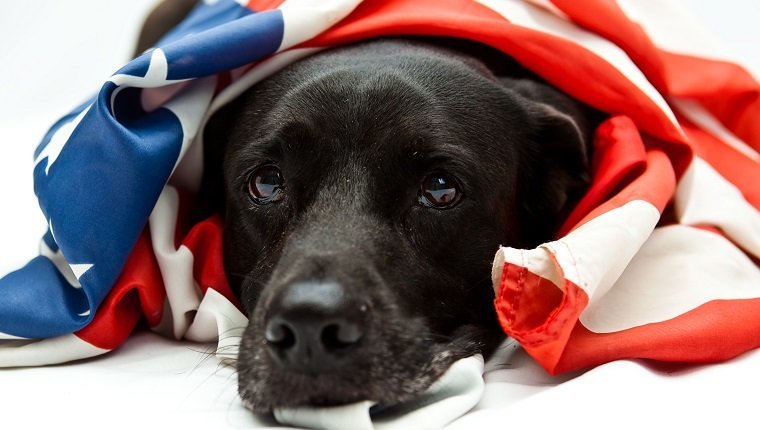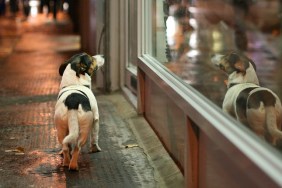The day after the 4th of July is the busiest day of the year for animal shelters in the United States. The loud noises and bright lights of fireworks and celebrations frighten our dogs and other pets, and many animals escape out of fear and get lost.
As a responsible dog parent, you probably take steps to make sure your pup is safe and as relaxed as possible on Independence Day, but there are some things that are done with the best intentions that end up making dogs’ fears worse.
Here are five things that you might do to calm dogs on the 4th of July that can actually make your dogs more afraid, and what you should do instead.
How do you keep your pup safe when the Fourth of July fireworks are going off? Let us know in the comments below!
5 Things Humans Do To Make 4th Of July Fireworks Fear & Anxiety Worse For Their Dogs
-
Acepromazine, Or 'Ace'
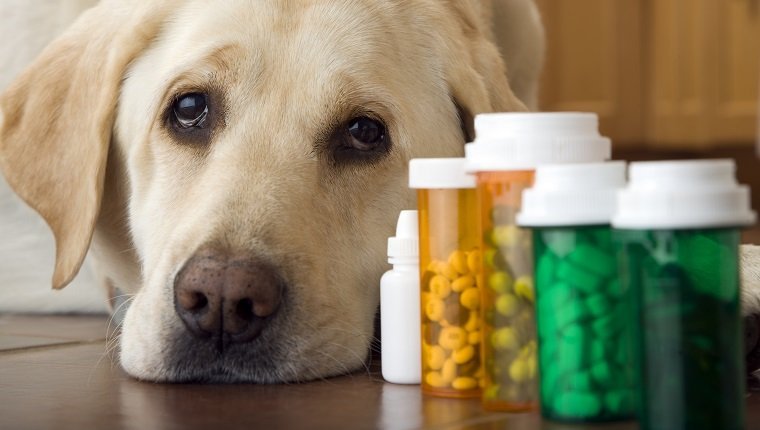
(Picture Credit: Getty Images)
You may have heard the term "Ace" when it comes to relaxing your dog. "Ace" is short for acepromazine, a commonly prescribed drug that is supposed to work as a sedative for dogs.
It's a dissociative anesthetic, meaning it interferes with perception, which for a dog who's already scared can be downright terrifying. The drug can actually increase sensitivity to noise, and many times makes dogs more reactive to loud sounds.
Instead, talk to your vet about a different sedative and thoroughly research how it works, the side effects, and what other veterinarians say about it. Some vets prefer Alprazolam, the doggy version of Xanax.
If you'd like a more natural solution, there are several homeopathic remedies for anxiety, including chamomile, oat, and echinacea. Certain supplements can also help.
Consult your vet to find an option that works best for you and your dog.
-
Keeping Your Dog Inside All Day
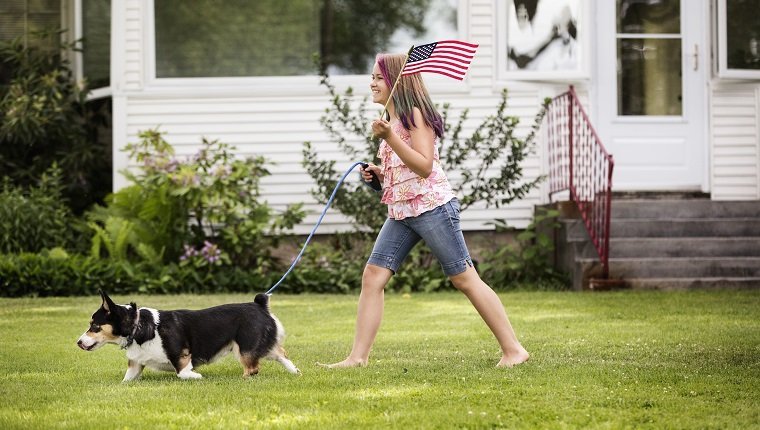
(Picture Credit: Hill Street Studios/Getty Images)
Common sense tells you that if there's something frightening outside, you should keep your dog inside. With the barbecues going on and people lighting off fireworks early, you may feel it's best to keep your dog inside with the exception of a few potty breaks all day.
This is actually not the best idea. Dogs who are cooped up have too much energy, and that energy fuels their nervousness, making them more likely to react or bolt.
Instead, make sure your dog gets some exercise away from the parties and as far from fireworks as possible, preferably during the morning or at times where the action isn't as high. Get in some walks or vigorous play sessions to make your dog tired.
The more tired your dog gets, the less energy they'll have to dedicate to fear and anxiety. A tired dog is a happy dog. They may even be able to get some sleep during the fireworks instead of being awake and anxious.
-
Leaving Them Home Alone During The Fireworks Show
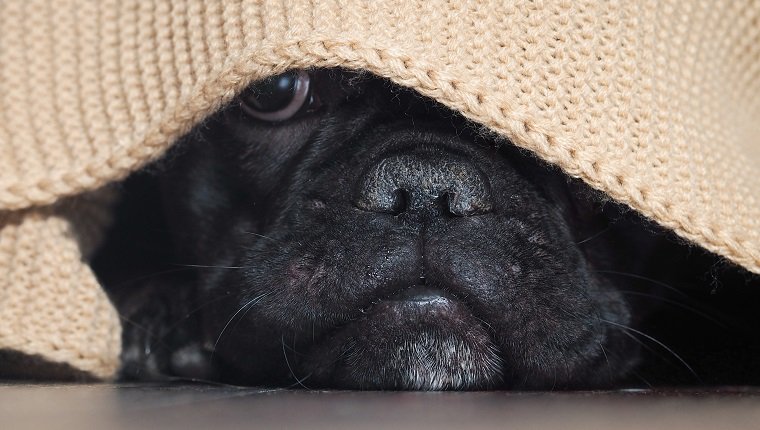
(Picture Credit: kozorog/Getty Images)
It should go without saying that you shouldn't bring your dog to a fireworks show where they'll be fearful and likely to run away, but you also shouldn't leave your dog home alone either.
A dog left alone can be destructive and, in their fear, may look for an opportunity to escape.
You may not need to be in the room with your dog every minute of the day, but frequent check-ins are a must to reduce anxiety and make sure your dog isn't putting themselves in danger. Fireworks shows are typically too long to go without a check-in.
Someone familiar should stay home with your dog, whether it's a family member or trusted pet sitter. A comforting human presence can go a long way in reducing anxiety. You wouldn't leave a frightened human child alone to fend for themselves, so don't do it to your dog.
This does mean that someone will have to miss the big fireworks show. But let's be honest. You've seen fireworks before, and you'll see them again. Your dog's safety is more important.
-
Coddling, Baby Talk, Or Acting Like Something's Wrong
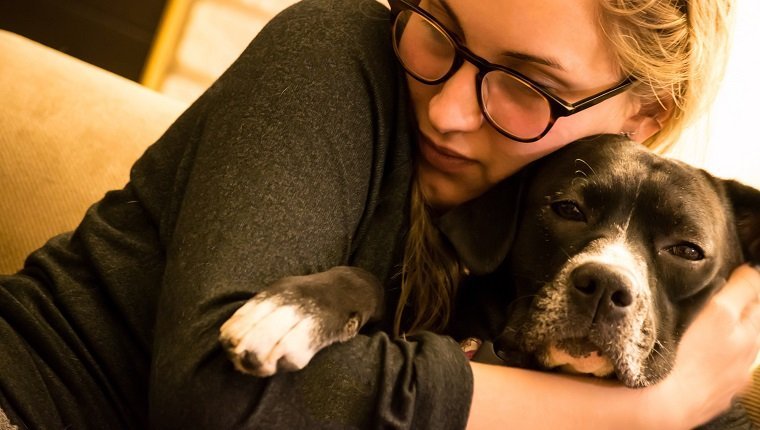
(Picture Credit: Mila Araujo / EyeEm/Getty Images)
Almost all dog parents are guilty of coddling or speaking to their dogs in a high-pitched baby voice to try and calm them down. The problem is that it doesn't work if that's not how you speak to them all the time.
Dogs notice when you're acting unnaturally, and they pick up on your fears and concerns. If you're acting strange, your dog knows something is out of the ordinary, and that means that they need to be on edge and watch out for danger.
Speak to your dog in the voice you usually use and, as much as possible, act like it's a normal day around them. Maintain a calm, relaxed energy, and speak to them as you would at any other time.
When they react to fireworks, use a distraction like a toy or treats. You can even leave them with a frozen treat to gnaw on and stay busy.
-
Locking Them In A Place They Might Escape
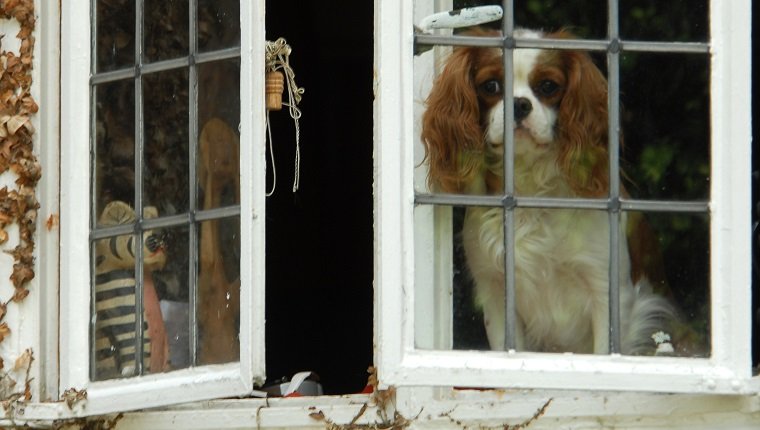
(Picture Credit: Getty Images)
You know to lock your dog inside during the peak hours of fireworks shows, but where you choose to lock up your dogs is important.
I remember two of my dogs were sitting on our screen porch during a warm day in the summer. One saw a squirrel and bolted right through the screen, and the other dog followed. Luckily they stayed nearby, but if they had been locked out there when fireworks were added to the mix, it might have been much worse.
A room with an open window or a screen window can be just as bad if your dog can reach it, and a frightened dog will look for a chance to escape.
Lock your dog in a room where windows are secure and shut. No screen windows. Make sure all doors close completely, preferably with a lock, and that guests know not to open those doors. Be careful when checking in on your dog so they don't slip past you and bolt.
Playing calm music or turning on the television can help drown out frightening noises and keep them relaxed. Locking your dog in a fenced yard is not a good idea. They are more exposed to noises and may dig out or climb if they're frightened enough.
